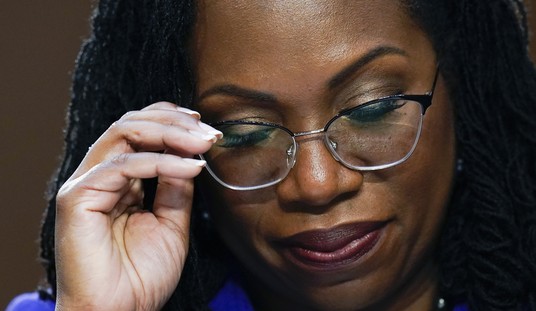According to a national survey of attitudes about adultery, a full quarter of Americans do not consider a “one-night stand with someone other than your partner” to count as cheating. The survey tested attitudes about a wide range of behaviors that might be considered cheating or infidelity, many enabled by the digital age.
While the Deseret News/YouGov survey included behaviors like following an ex on social media, the most grabbing responses came from the quarter of Americans who did not consider one-night stands — or even regular sexual relations with someone else — as cheating.
A vast majority (76 percent) of Americans said they consider regular sex with someone other than a spouse or partner to “always” count as cheating, but six percent said it only “sometimes” was unfaithful, and 18 percent — almost one-fifth of all Americans — said it “never” counted as cheating.
More than a quarter of Americans (27 percent) said that “having a one-night stand with someone other than your partner” did not “always” count as cheating. At least 8 percent said a one-night stand “sometimes” counts as cheating, but 19 percent said it “never” does.
A majority of Americans considered five other behaviors to “always” count as cheating, including “romantically kissing” someone besides your partner (71 percent), “sending sexually explicit messages” to someone else (69 percent), keeping up an online dating profile (63 percent), “being emotionally involved” with someone outside the relationship (55 percent), and “sending flirtatious messages” to someone besides the partner (51 percent).
Only 37 percent of Americans said “going out to dinner with someone that you are attracted to” always counts as cheating, while 23 percent said going to a strip club without your partner does. About one-fifth (19 percent) said watching porn without your partner “always” counts as cheating, and 16 percent said cheating includes “following an ex on social media.”
Mormons were more likely to consider each of these behaviors to count as cheating, and Roman Catholics were consistently less likely to do so. Women were also more sensitive to cheating, with more of them ranking each of the behaviors as infidelity.
Interestingly, only 69 percent of Catholics said a one-night stand “always” counted as cheating, and only 70 percent said the same about having regular sexual relations with someone else. The religiously unaffiliated, however, were more likely to say a one-night stand (74 percent) or regular sex with someone else (81 percent) counted as cheating. The unaffiliated were less likely than Catholics to rank flirtatious messages, dinners, going to a strip club, and watching porn without your partner as cheating, however.
The survey also broke down by generation. Contrary to popular belief, millennials were not the least likely to consider all of these behaviors cheating. More millennials (16 percent) than Gen-Xers (10 percent) said following an ex on social media counted as cheating, for example. The younger generation was also more likely (25 percent) than Gen-Xers (18 percent) or Baby Boomers (23 percent) to say that going to a strip club without your partner is cheating.
On the other hand, they were the generation least likely to consider regular sex, sexually explicit messages, and an online dating profile as cheating.
When asked whether a presidential candidate’s past extramarital affair would matter to them, most Americans (54 percent) said it would not matter, while 40 percent said they would be less likely to support a candidate with that history. Interestingly, a full 6 percent said they would be “more likely” to vote for a presidential candidate with a history of infidelity.
Only Mormons (62 percent) and mainline Protestants (50 percent) were more likely to oppose an unfaithful presidential candidate. Fewer evangelical Protestants (43 percent), Catholics (38 percent), and the unaffiliated (32 percent) said they would be less likely to support candidates with a history of infidelity.
Among generations, Gen-Xers (61 percent), Baby Boomers (55 percent), and members of the Silent Generation (49 percent) were all more likely than millennials (48 percent) to say a candidate’s past infidelity would not matter. But millennials were most likely (10 percent) to say a candidate’s past infidelity would push them toward supporting that candidate.
Candidate infidelity also mattered more to women than to men.
The influence of Donald Trump was apparent in responses from Republicans and Democrats. In 2007, more Democrats (69 percent) than independents (60 percent) and Republicans (42 percent) said a candidate’s history of infidelity would not matter to them. Even as late as last year, more Democrats than Republicans said marital infidelity wouldn’t matter. But in the most recent survey, more Republicans (57 percent) than Democrats (47 percent) said so. Only independents remained consistent, at 61 percent.
Not surprisingly, younger people reported having sex more frequently, while Mormons were the most likely (and Catholics the least likely) to have sex at least once per week.
The survey involved 1,000 interviews with American voters, between March 17 and 19. The general population margin of error is plus or minus 3.1 percent, and plus or minus 5.9 percent for oversample groups, like Mormons, who were overrepresented.
While every survey has its limits, this study proved fascinating on many levels. Apparently, a sizable chunk of American voters have “open” relationships, where even frequent sex with someone other than your parter is not considered infidelity. Or perhaps some respondents didn’t understand the question, or wanted to mess with the survey.
Also interesting, the survey helped explain the hubbub over Vice President Mike Pence’s rule never to share a meal alone with a woman other than his wife — the “Billy Graham rule.” Only 37 percent of voters overall thought “going out to dinner with someone that you are attracted to” counts as cheating, but 53 percent of evangelical Protestants said it did, as did 50 percent of Mormons.
To Roman Catholics (32 percent), mainline Protestants (32 percent), and the unaffiliated (31 percent), who mostly do not think it is always cheating to go out to dinner with someone you’re attracted to, this rule seems quaint and almost dangerous — many liberals complained that it would prevent women from valuable working relationships with Pence. But the rule does not mean (as has been widely misreported) that Pence will not be in a room with a woman one-on-one, as in an interview, only that he will not dine with a woman that way.
As for the questions about a candidate’s past infidelity, those fall in line with recent behavior. The “religious right,” infamous for calling out President Bill Clinton and getting him impeached, seemed to rally behind Donald Trump, a man who has bragged about his infidelities, and cheated on at least two wives. Other surveys also showed increasing acceptance for this kind of behavior among evangelical Protestants.
But these answers were all self-reported, so they may not be very reliable. Do Mormons really have the most frequent sex, or do they just say they do? Perhaps it’s a good thing that no one will ever know for certain.









Join the conversation as a VIP Member